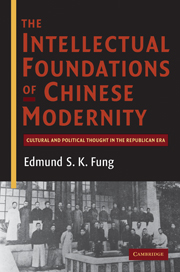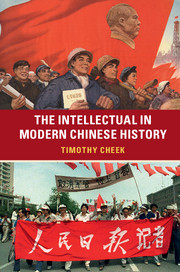The Intellectual Foundations of Chinese Modernity
In the early twentieth century, China was on the brink of change. Different ideologies - those of radicalism, conservatism, liberalism, and social democracy - were much debated in political and intellectual circles. Whereas previous works have analyzed these trends in isolation, Edmund S. K. Fung shows how they related to one another and how intellectuals in China engaged according to their cultural and political persuasions. The author argues that it is this interrelatedness and interplay between different schools of thought that are central to the understanding of Chinese modernity, for many of the debates that began in the Republican era still resonate in China today. The book charts the development of these ideologies and explores the work and influence of the intellectuals who were associated with them. In its challenge to previous scholarship and the breadth of its approach, the book makes a major contribution to the study of Chinese political philosophy and intellectual history.
- Takes an integrated approach which is not seen in previous literature
- Provides an overview of key themes and ideas in relation to their cultural and political backgrounds
- Allows the reader to gain an understanding of the key thinkers as well as less-known figures that are generally little studied
Reviews & endorsements
"...as it is, this analysis of Republican thought constitutes an enormously valuable contribution to the field." - American Historical Review
'Cheek’s excellent book contributes to our understanding of the roles which intellectuals at various levels of the elite played in China’s modernization and the ways in which these roles and the scholarly enterprise evolved over time … Such work becomes an increasingly important window to understand a China that is taking on a new global role in multiple arenas.' Elina Sinkkonen, The English Historical Review
Product details
March 2010Hardback
9780521195119
336 pages
229 × 152 × 19 mm
0.62kg
Available
Table of Contents
- Introduction
- 1. The push of Westernized radicalism
- 2. The pull of cultural conservatism
- 3. The politics of modern Chinese conservatism
- 4. Liberalism in China and Chinese liberal thought
- 5. The state, government and rule of law
- 6. The rise of reformist socialist thought
- 7. From state socialism to social democracy
- Conclusion.







